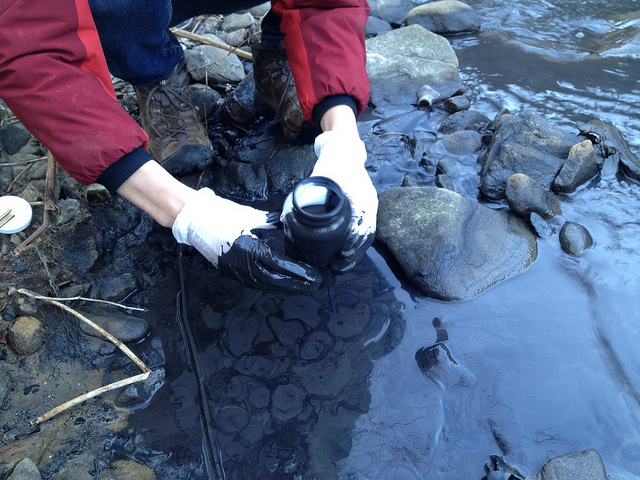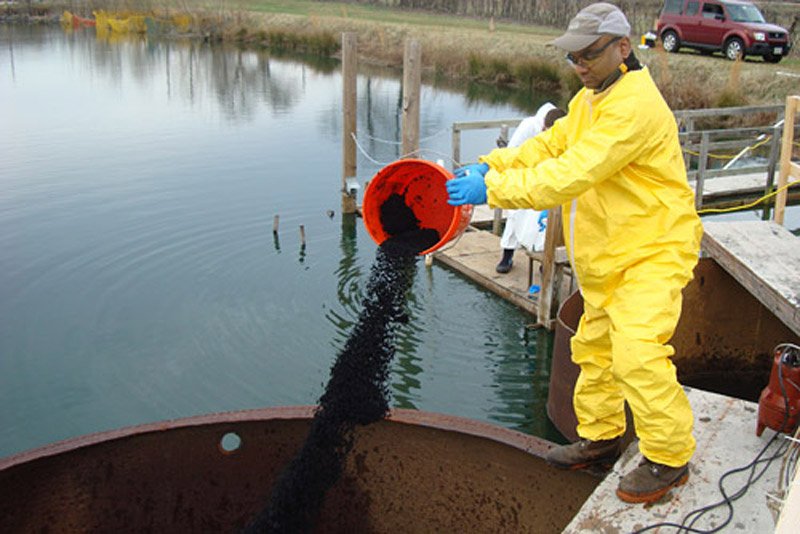2015 — (Aug/Sept)
Formidable Costs
Coal Company Conducts Business as Usual Near Kanawha State Forest By Tarence Ray Seven miles south of Charleston, W.Va., sits a 9,300-acre expanse of trails, streams and wildlife known as the Kanawha State Forest. The forest’s diverse wildflower and bird species attract naturalists from all over the region, and trails and fully-equipped campgrounds bring in…
Read MoreWater Privatization
The troubles of an investor-owned, private water utility in West Virginia illustrate some of the hazards of private water ownership. Nationally, the number of Americans relying on public water utilities is growing, and for-profit water companies face a tougher market.
Read MoreClean Water Laws Wrestle With Coal
America’s environmental regulations have hampered the coal industry to varying degrees for decades, and though those rules can protect communities from pollution, the law alone is often not able to secure clean water. Here are some of the trouble spots.
Read MoreFarewells and Thank-Yous!
We say farewell to two long-time AV staff members, and express our sincere gratitude to our incredible 2014-15 AmeriCorps team.
Read MoreSaving Energy, One Utility at a Time
Our Energy Savings for Appalachia team has been campaigning to bring energy efficiency to the High Country of North Carolina, a region that spends nearly three times more of their income on electric bills than the average American. The campaign’s current focus is encouraging Blue Ridge Electric Membership Cooperative to offer an on-bill financing program…
Read MoreProposed Stream Protection Rule Released
By Erin Savage The agency responsible for regulating surface coal mining across the country released a proposed Stream Protection Rule on July 16, which is intended to limit mining impacts on streams. The long-awaited rule is not the federal Office of Surface Mining Reclamation and Enforcement’s first attempt to control the effects of surface mining…
Read MoreAlabama Coal: Strip Mine Proposal Halted on Mulberry Fork
By Kimber Ray Even to those familiar with Appalachia’s historically destructive relationship with coal, the proposal for the 1,773-acre Shepherd Bend strip mine in northern Alabama seemed unprecedented. Flowing through the mountains of Alabama’s largest coal-producing region, the Mulberry Fork tributary of the Black Warrior River houses the drinking water intake for more than 200,000…
Read MoreVirginia Town Tests Natural Pollution Treatment Techniques
Using natural methods to remove toxic material from soil and water is an ancient practice that has not been well-studied. A series of projects in Altavista, Va., could be the first to show that bioremediation can be a successful, cost-effective way to treat PCB contamination.
Read MoreDisposing of a Chemical Past
Rockets and projectiles containing more than 500 tons of nerve gas and other chemical weapons from World War II and the Vietnam War era are stored near Richmond, Ky. If all goes according to plan, those weapons will be destroyed over the next few years in a multi-billion facility in final stages of construction.
Read MoreCommunities Find Solutions to Stormwater
To help reduce polluted stormwater from overwhelming nearby waterways, Appalachian cities, towns and universities are deploying green infrastructure and other creative methods.
Read More




